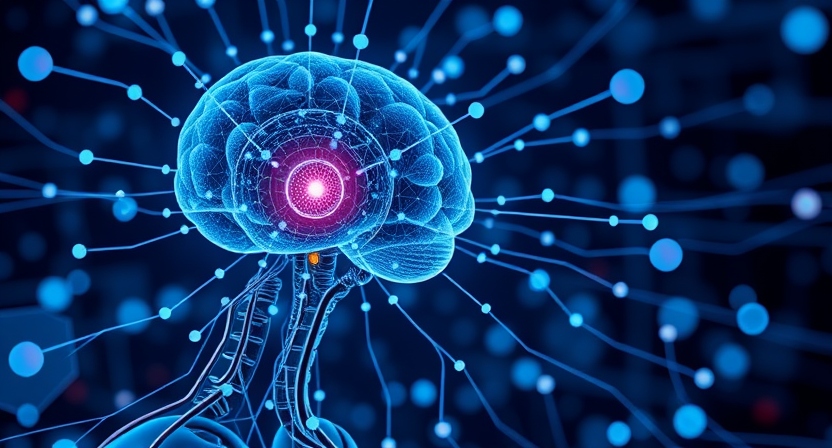What is Artificial Intelligence (AI)?
What comes to mind when you hear the term artificial intelligence (AI)? Robots? ChatGPT? While the concept might still feel unfamiliar to some, AI is increasingly integrated into both business operations and daily life.
At its core, artificial intelligence refers to computer software capable of learning, analyzing data, making decisions, and solving problems in ways that mimic human intelligence. AI systems are designed not just to execute commands but to adapt, evolve, and improve over time based on the data they process.
Broadly speaking, AI can be categorized into two main types: machine learning and deep learning, each offering distinct capabilities and applications.
Machine Learning
Machine learning is a subset of AI that involves programming computers to analyze vast amounts of data, identify patterns, detect anomalies, and provide insights to decision-makers—typically humans. Unlike traditional software, which follows static instructions, machine learning systems improve their performance over time by learning from data.
For example, a machine learning system in a retail business can analyze customer purchasing behaviors to forecast demand, optimize inventory, and even personalize marketing efforts. By identifying patterns that are invisible to the human eye, machine learning empowers businesses to make data-driven decisions faster and more accurately.
Deep Learning
Deep learning, a more advanced form of machine learning, leverages artificial neural networks modeled after the human brain. These systems are designed to process enormous datasets, adapt to new scenarios, and make real-time decisions.
A notable example of deep learning in action is autonomous vehicles. Self-driving cars rely on deep learning to interpret road conditions, navigate traffic, and make split-second decisions, such as stopping for a pedestrian or adjusting to weather changes. This level of adaptability and speed is essential for complex environments where human-like decision-making is required.
Applications of Artificial Intelligence in Business
Artificial intelligence has transformed the way businesses operate, offering innovative solutions across industries. Here are seven examples of how AI is being used effectively in business today:
1. Chatbots for Customer Relationship Management (CRM)
One of the most visible examples of AI in business is chatbots. These virtual assistants are programmed to handle customer queries, complaints, suggestions, and even facilitate purchases. By leveraging natural language processing (NLP), chatbots can simulate human-like conversations, providing instant responses tailored to customer needs.
For example, a chatbot on an e-commerce platform can guide users through the shopping process, recommend products, and address common concerns such as refund policies or delivery timelines. Unlike human agents who typically work limited hours, chatbots operate 24/7, ensuring seamless customer support at all times.
However, while chatbots handle routine questions efficiently, more complex inquiries still require human expertise, making them a complementary tool for customer service teams.
2. Product Recommendations
Ever noticed how products you’ve searched for online start appearing everywhere—from your marketplace homepage to social media ads? This personalized experience is powered by AI algorithms analyzing your browsing and purchase history.
By studying user behavior, AI systems can identify preferences and suggest products that align with individual tastes. For instance, a music streaming app might recommend playlists based on the user’s listening habits, while an online retailer might highlight complementary items to encourage additional purchases.
This approach not only enhances user experience but also boosts sales, as customers are more likely to engage with relevant recommendations.
3. Cybersecurity
In the realm of cybersecurity, AI plays a crucial role in detecting and mitigating potential threats. Using machine learning, AI systems can analyze network activity, identify unusual patterns, and flag potential breaches in real time.
For financial institutions, AI-powered fraud detection systems are particularly valuable. These systems can recognize unusual spending behaviors, such as transactions in unfamiliar locations or significantly higher amounts than usual. Upon detecting anomalies, the system alerts decision-makers to take immediate action, preventing fraud and minimizing financial losses.
4. Trading Bots
Trading bots are a game-changer for traders in the stock market and forex industries. These AI-powered systems execute trades based on predefined parameters set by users, such as entry and exit points or risk tolerance levels.
Unlike human traders who need rest, trading bots operate continuously, making them ideal for markets that are active 24/7. For example, a forex trader using a bot can capitalize on market movements even while sleeping, ensuring no profitable opportunities are missed.
5. Market Research
AI simplifies market research by processing vast amounts of data from customer feedback, sales records, and online reviews. These insights help businesses understand customer preferences, identify trends, and uncover areas for improvement.
For example, a restaurant chain can use AI to analyze customer reviews and pinpoint common complaints, such as slow service or menu pricing. This data can then inform management decisions to enhance the dining experience. By automating these processes, businesses save time while gaining valuable insights to refine their strategies.
6. Biometric Verification
Biometric verification is a sophisticated application of AI used to confirm an individual’s identity based on unique physical or behavioral traits, such as facial recognition, iris scanning, or voice analysis.
This technology is widely adopted in industries that prioritize security, such as finance and healthcare. For instance, employees in a secure facility might use facial recognition to gain access to restricted areas, ensuring that only authorized personnel can enter.
The system works by analyzing biometric data and converting it into a secure digital code. This code is then matched with stored data during subsequent access attempts. If the data doesn’t match, access is denied, effectively preventing unauthorized entry.
7. Credit Scoring
AI has revolutionized the way financial institutions evaluate creditworthiness. Traditional credit scoring models often rely on limited data, but AI systems can analyze a broader range of information, including transaction history, spending habits, and repayment behavior.
For example, digital banks and “buy now, pay later” (BNPL) services use AI to assess customer profiles and assign appropriate credit limits. A customer with a history of on-time payments and high account balances is more likely to receive a higher credit limit than one with inconsistent financial behavior.
This approach ensures that credit is allocated responsibly while minimizing the risk of defaults.
Advantages of Using Artificial Intelligence in Business
Integrating AI into business operations offers numerous benefits that go beyond what traditional methods can achieve. Here are some of the key advantages:
1. Enhanced Efficiency and Speed
AI systems are designed to process vast amounts of data quickly and accurately, far exceeding human capabilities. This means tasks that previously took hours or days can now be completed in minutes.
For instance, an AI-powered inventory management system can analyze sales data, predict future demand, and automatically reorder stock to prevent shortages—all in real time. By streamlining operations, businesses can save time and focus on strategic growth.
2. Continuous 24/7 Operation
Unlike human employees, AI systems don’t require rest or downtime. Applications like chatbots, automated monitoring systems, and trading bots can operate around the clock, ensuring consistent performance.
For example, a customer service chatbot can handle inquiries at any time of day, offering instant assistance even outside regular business hours. This not only improves customer satisfaction but also reduces the workload for human support teams.
3. Improved Decision-Making with Data Insights
AI’s ability to analyze complex datasets enables businesses to make smarter, data-driven decisions. By identifying patterns, trends, and anomalies, AI systems provide actionable insights that would otherwise remain hidden.
For example, a marketing team can use AI to segment audiences based on behavior, preferences, and demographics. These insights help craft personalized campaigns, ensuring a higher return on investment (ROI).
4. Enhanced Security
AI significantly improves business security through applications such as fraud detection and biometric verification. These systems are not only faster at identifying potential threats but also more accurate in assessing risks.
For instance, an AI-powered fraud detection system in a bank can instantly flag unusual transactions, such as large withdrawals in a foreign country, and block them until verified. Similarly, biometric authentication ensures only authorized individuals access sensitive data or facilities, reducing the risk of breaches.
5. Cost-Effective and Scalable Solutions
While the initial investment in AI technology can be high, the long-term savings and scalability make it a worthwhile choice for businesses of all sizes. AI automates repetitive tasks, reduces human error, and optimizes resource allocation, ultimately lowering operational costs.
For example, in manufacturing, AI-driven robots can handle assembly lines with minimal supervision, reducing labor costs while increasing productivity. As the business grows, AI systems can easily scale to handle higher demands without significant additional expenses.
6. Personalized Customer Experience
AI helps businesses tailor their offerings to individual customer needs, creating a more engaging and satisfying experience. By analyzing data from customer interactions, AI systems can recommend products, provide targeted promotions, and even predict future preferences.
For instance, a streaming service like Netflix uses AI to suggest movies and shows based on viewing history, ensuring users remain engaged and loyal to the platform.
7. Smarter Marketing Strategies
AI-powered tools enable businesses to develop marketing strategies that are more precise and customer-focused. By leveraging predictive analytics, businesses can forecast customer behavior, optimize ad placements, and allocate budgets more effectively.
For example, AI can help identify the most effective channels for reaching specific audiences, ensuring marketing efforts generate the highest impact. This not only maximizes ROI but also minimizes wasted resources on ineffective strategies.
Conclusion
Artificial intelligence is no longer a futuristic concept—it’s a practical tool that businesses can leverage to enhance efficiency, improve decision-making, and provide better customer experiences. Whether through chatbots, fraud detection, or personalized marketing, AI offers solutions that are faster, smarter, and more scalable than traditional methods.
By adopting AI, businesses position themselves to thrive in an increasingly competitive and data-driven world.


